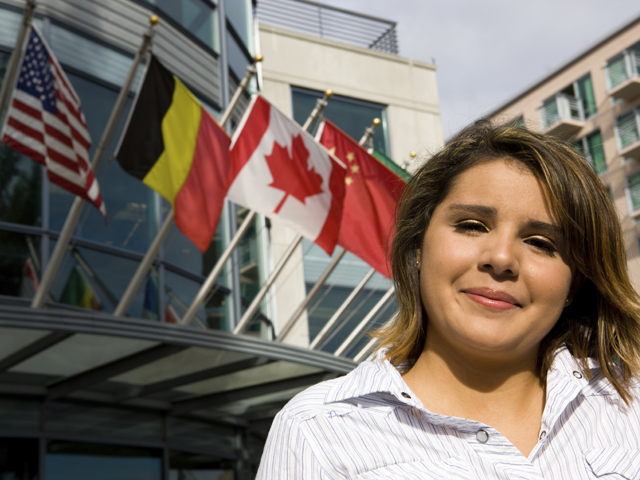Building a Career as a Diplomat

Brad Evans talks about his work as a Foreign Service Officer for the United States government.
Could you describe what working in the foreign service is about?
Foreign Service Officers are the United States' diplomatic corps. We primarily work in U.S. embassies overseas, officially representing the U.S. government and providing services to American citizens and businesses there. We also report back to the State Department and other U.S. government agencies on the situation in the country so that our government can make informed policy decisions.
What do you think is the best part of your work?
I'm always struck by the fact that this is one of the few careers where you can change your job every few years without having to actually quit and find a new employer. As a result, you get a much broader experience than you might if you were always worried about job security. The other incredible thing is that every couple of years someone pays me to learn a foreign language full-time. It's truly one of the perks of the job.
How is your work influenced by events elsewhere in the world?
In today's world things are amazingly interconnected. At my last assignment in Kosovo, one of the things I covered was civil aviation and air traffic control, which the Government of Iceland has been helping with a lot. So we were working with Iceland, local officials in Kosovo and the rest of the Balkans, and European Union officials in Brussels to deal with some of the air traffic issues in that part of the world, all of which were also influenced by decisions made at International Civil Aviation Organization headquarters in Montreal, Canada. So a little work in the Balkans could ping-pong over Europe and across the northern Atlantic and back again -- you got to be very sensitive to the idea that events elsewhere could affect what you did every day at work.
Where did you go to high school, and what sort of student were you?
I went to public high school in Hawaii, where my father was assigned with the U.S. Air Force. Actually, our move to Hawaii probably had more to do with my current job than anything else -- before that, I was always interested in politics, but not necessarily international affairs. Being exposed to a multicultural city like Honolulu really made me aware of the possibilities abroad. I started studying Japanese and was active with the state student council along with "normal" stuff like sports and other student groups.
What internships or programs did you do before entering the ‘real world’ and full-time work?
To be blunt, I devoted a lot of time in college to grubbing for money to do internships and study abroad -- one stint working construction was enough "real work" for me, I guess. I did a term in Beijing, China and later found grants to do internships at the Pacific & Asian Affairs Council (then an affiliate of the U.S. World Affairs Council) in Honolulu and the State Department in Washington, as well as a fellowship to study in western China for a year after graduation.
What inspired you to work in the foreign service?
Basically, I was trying to decide between academia and government, and decided I'd rather be part of the policy-making process than an observer and commentator on it. My biggest motivation now comes from feeling like my efforts have changed policy for the better or that they've opened new doors in our relationship with a given country.
Are there any
unique skills a person would need for your line of
work?
The most important things are adaptability, organizational skills, and interpersonal skills. People should look for opportunities that will help them develop those kinds of skills. Language ability is a definite plus, but more in the sense of being good at learning languages -- if you need a specific language, the Department will usually train you in it.
Could
you share some advice for students interested in similar
careers?
Start getting exposure to foreign cultures and ideas now. Travel if you can, but at a minimum read and talk as much as you can about international affairs. Don't be shy about asking for money -- there's actually a lot of it out there for internships and study, both here and overseas. Finally, definitely study a foreign language. It's so much easier to learn them when you're younger.
What career situation do you picture yourself in ten years from now?
My wife (who's also a Foreign Service Officer) and I are just starting a family now, so that will obviously play a big role. We love the variety of experience and the opportunities our job gives us, so in ten years we'll likely be a few more postings down the road with the Department. To be honest, I've always had trouble thinking of anything else that suits me better. Aside from the hassle of moving, this whole thing can be a pretty good time.
Author: Interview conducted by Lawrence Dabney